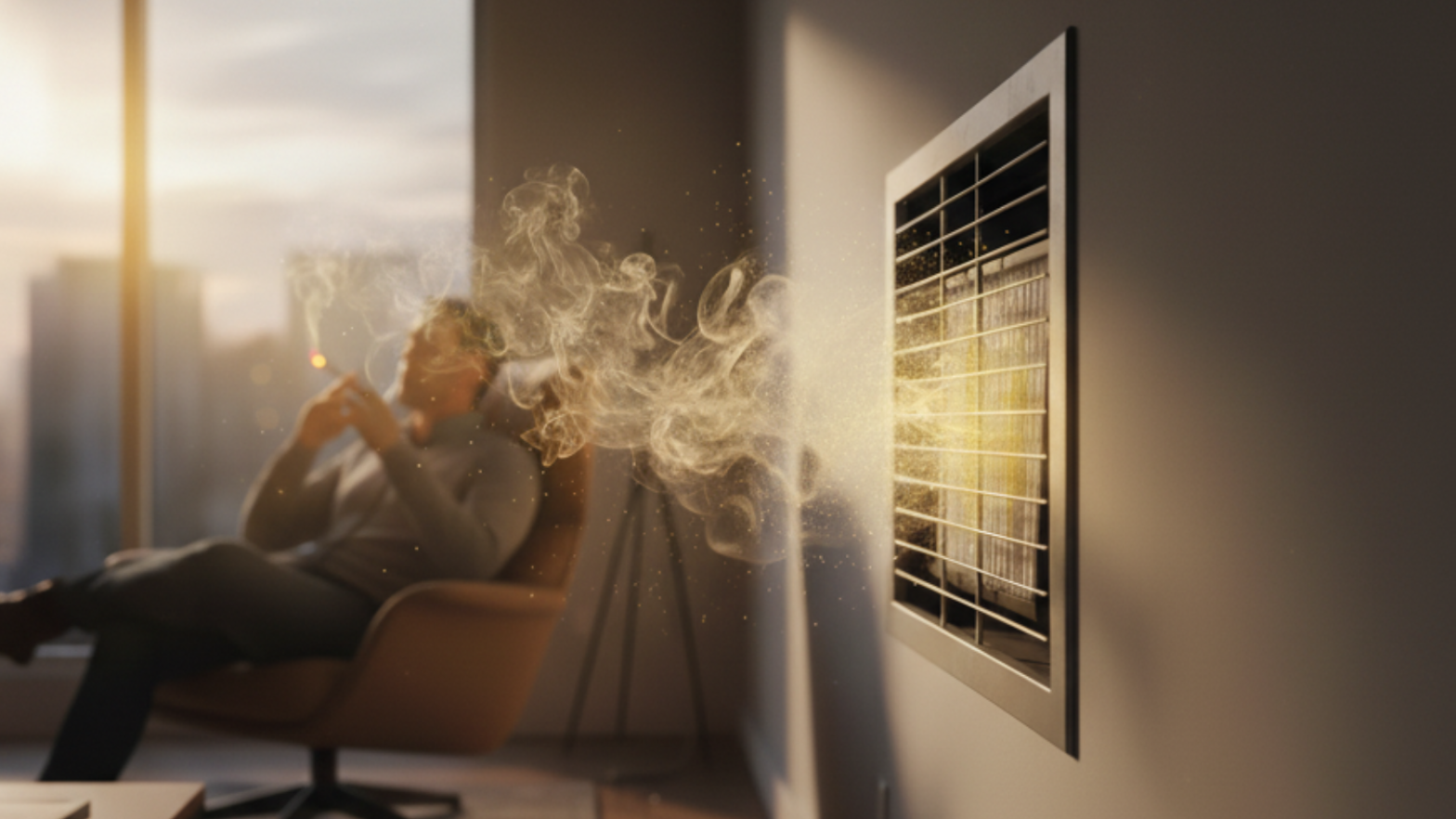
Cigarette smoke HVAC issues are more common than many homeowners realize. When smoke particles enter your heating and cooling system, they don’t just linger in the air—they damage filters, coat ductwork, spread odors, and reduce efficiency. Understanding how cigarette smoke affects HVAC systems is the first step to protecting both your equipment and your indoor air quality.
What Happens When Cigarette Smoke Enters HVAC Systems
Cigarette smoke contains thousands of tiny particles and chemicals. Once released indoors, these particles are drawn into the HVAC system. Unlike dust or pollen, smoke particles are extremely small and sticky, making them harder to filter out. Over time, this contamination builds up throughout the system.
HVAC Filters and Airflow
The first line of defense in your HVAC system is its filter. Cigarette smoke clogs filters much faster than normal dust or pet dander. When filters become overloaded:
- Airflow drops significantly
- The system works harder to push air through
- Energy bills rise as efficiency falls
- Pollutants slip through and re-enter your living space
HVAC Odors and Residue
Smoke isn’t just a gas—it leaves behind tar and nicotine. These sticky substances cling to the inside of ducts, coils, and vents. The result:
- Persistent cigarette odors spreading to every room
- Brownish film building up inside ductwork
- Dust and debris sticking more easily to residue
Even after smoking stops, these odors can last for years without professional cleaning.
Health Risks
When cigarette smoke circulates through HVAC systems, it impacts more than just equipment:
- Aggravates asthma and allergies
- Triggers respiratory irritation
- Contributes to long-term indoor air pollution
For families with children, elderly residents, or anyone with health concerns, cigarette smoke in HVAC systems poses a serious risk.
Best Solutions
While the most effective solution is eliminating indoor smoking, there are steps to protect your HVAC system if exposure has already happened:
- Frequent Filter Changes – Replace HVAC filters monthly or sooner if smoking continues.
- Professional Duct Cleaning – Remove tar, nicotine, and lingering odor buildup.
- Activated Carbon Filters – Specialized filters that absorb cigarette smoke odors.
- Air Purification Systems – Whole-home or portable purifiers with HEPA + carbon technology.
- No-Smoking Policy – Protects both the HVAC investment and your family’s health.
Final Thoughts
Cigarette smoke doesn’t just harm lungs—it harms HVAC systems too. From clogged filters and sticky ductwork to higher bills and health risks, the impact is long-lasting. By addressing cigarette smoke HVAC problems early and investing in preventative solutions, homeowners can improve air quality, reduce costs, and extend the life of their system. Contact us to learn more about duct cleaning services and other solutions.

